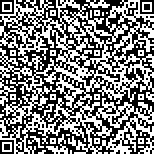| This Paper:Browse 1074 Download 12 |

码上扫一扫! |
| Neural network-based adaptive decentralized learning control for interconnected systems with input constraints |
| ChaoxuMu,HaoLuo,KeWang,ChangyinSun |
|
|
| (School of Electrical and Information Engineering, Tianjin University, Tianjin 300072, China;School of Automation, Southeast University, Nanjing 210096, China) |
|
| 摘要: |
|
| 关键词: |
| DOI:https://doi.org/10.1007/s11768-021-00056-w |
|
| 基金项目:This work was supported by the National Key R&D Program of China (No. 2018AAA0101400) and the National Natural Science Foundation of China (Nos. 62022061, 61921004). |
|
| Neural network-based adaptive decentralized learning control for interconnected systems with input constraints |
| Chaoxu Mu,Hao Luo,Ke Wang,Changyin Sun |
| (School of Electrical and Information Engineering, Tianjin University, Tianjin 300072, China;School of Automation, Southeast University, Nanjing 210096, China) |
| Abstract: |
| In this paper, the neural network-based adaptive decentralized learning control is investigated for nonlinear interconnected
systems with input constraints. Because the decentralized control of interconnected systems is related to the optimal control
of each isolated subsystem, the decentralized control strategy can be established by a series of optimal control policies. A
novel policy iteration algorithm is presented to solve the Hamilton–Jacobi–Bellman equation related to the optimal control
problem. This algorithm is implemented under the actor-critic structure where both neural networks are simultaneously
updated to approximate the optimal control policy and the optimal cost function, respectively. The additional stabilizing term
is introduced and an improved weight updating law is derived, which relaxes the requirement of initial admissible control
policy. Besides, the input constraints of interconnected systems are taken into account and the Hamilton–Jacobi–Bellman
equation is solved in the presence of input constraints. The interconnected system states and the weight approximation errors
of two neural networks are proven to be uniformly ultimately bounded by utilizing Lyapunov theory. Finally, the effectiveness
of the proposed decentralized learning control method is verified by simulation results. |
| Key words: Decentralized control · Actor-critic learning · Neural network · Input constraints |

